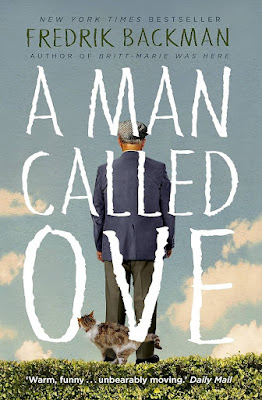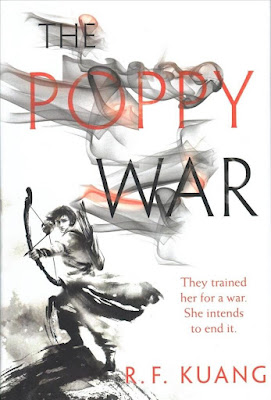The Book Thief
A little girl once caught Death's attention. Since he liked how her story went, he decided to share it with us. And when Death tells a story, you really have to listen.
9-year-old Liesel and her brother Werner travel to Munich with their mother, to meet their new foster parents. Their mother would soon leave them, just like how Father did long ago, because of 'Kommunist', a word she doesn't know the meaning of and is too afraid to ask. Aboard the cold train, the ill little boy dies. With Werner's soul in his arms, Death watches Liesel pick up a black book forgotten by a gravedigger and hold it close, something to remind her of her brother. At that moment, the Book Thief is born. In Liesel's life, the appearance of books is often followed by death, though she doesn't notice this sinister pattern, because well, it's World War 2.
The Book Thief is the second book about the Holocaust and WW2 I've read written from a German perspective, the other being The Boy in the Striped Pajamas by John Boyne. It was so colourful, this book. The narrator, Death, remembers the moments he collected souls by the colours that surrounded him. Not just colours, the feelings that people felt were not given a few words to express themselves, but they were allowed to develop. So much that each breath-taking moment that Liesel experienced felt like I was there in Himmel Street. This high-definition characteristic held me captive and made even the dark parts beautiful. This slow take however is not to everyone's taste. I recommended it to a friend, who returned it soon because it was too vague for her liking.
The story would only fill about half the book, but Markus Zusak's book is not just about the story, it's about everything that contributes to it- her best friend's eccentricity, pledging your loyalty to Hitler while harbouring a Jew, the traumatised soldier who saw his mangled brother draw his last breath, the love hidden behind her foster parents' behaviour.
Liesel's foster parents, Hans and Rosa Hubermann are as different as oil and water. Fierce and foul-mouthed Rosa doles out love slathered thickly with expletives and wooden spoon bashings while quiet Hans smokes while watching his wife thunder about the house, even terrorising the neighbourhood. Then he pulls out an accordion and winks at Liesel with eyes "made of kindness, and silver" as he plays. I loved how different the characters were and yet how they blended seamlessly.
Lemon-colour haired and blue-eyed Rudy Steiner didn't just break Liesel's heart, he broke mine too. Rudy's and the Jewish fugitive Max's stories are the kind for which you curse the author even while knowing that it made the story better. The same goes for The Boy in the Striped Pajamas and The Citadel; you never see the sudden plot twists coming. The book wouldn't make your heart race, but it would arrest you to one spot while the slow, meticulously crafted narrative reeled you in, just like a spider.
When I closed the book and looked out to see the colours, my mind dazed by this unusual story, a word went through my head- beautiful. Take your time reading it; it's a long book, but you might end up loving it as much as I do.
“I..." He struggled to answer. "When everything was quiet, I went up to the corridor and the curtain in the living room was open just a crack... I could see outside. I watched, only for a few seconds." He had not seen the outside world for twenty-two months.
There was no anger or reproach.
It was Papa who spoke.
"How did it look?"
Max lifted his head, with great sorrow and great astonishment. "There were stars," he said. "They burned my eyes."




Comments
Post a Comment